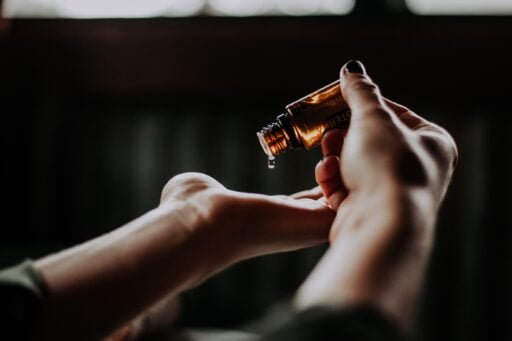Whether you have experienced a panic attack yourself or are trying to support someone who has, understanding how to help stop panic attacks is crucial. Panic attacks can be incredibly debilitating, causing intense feelings of fear and overwhelming physical sensations. In this article, you will discover effective strategies and techniques to aid in managing panic attacks and regain a sense of calm and control. By putting yourself in someone else’s shoes, you can provide the understanding and empathy needed to assist those struggling with panic attacks.
Understanding Panic Attacks
What is a panic attack?
Panic attacks are intense episodes of fear and anxiety that can come on suddenly and without warning. During a panic attack, you may experience overwhelming physical and psychological symptoms that can be both frightening and debilitating. These attacks typically peak within 10 minutes but can last longer in some cases.
Common symptoms of panic attacks
Panic attacks manifest with a variety of symptoms, both physical and psychological. Physical symptoms may include rapid heart rate, chest pain, shortness of breath, dizziness, trembling, and sweating. On the other hand, psychological symptoms can include intense feelings of fear, impending doom, disorientation, a sense of detachment from reality, and a fear of losing control or going crazy.
Causes of panic attacks
Panic attacks can be caused by a combination of genetic, biological, and environmental factors. While the exact cause may vary from person to person, common triggers include high levels of stress, traumatic experiences, a family history of anxiety disorders, certain medical conditions, and the use of stimulants such as caffeine or illicit drugs.
Recognizing the Signs of a Panic Attack
Physical symptoms
Physical symptoms of a panic attack can be extremely distressing and may mimic those of a heart attack or other serious medical conditions. Key physical signs to watch out for include a rapid or pounding heartbeat, chest pain or discomfort, shortness of breath or hyperventilation, dizziness or lightheadedness, trembling or shaking, sweating, hot flashes or chills, nausea or stomach discomfort, and a feeling of choking or suffocating.
Psychological symptoms
In addition to the physical symptoms, panic attacks also bring about various psychological symptoms. These can include intense fear or terror, a sense of impending doom or dread, feeling detached from oneself or reality, a fear of losing control or going crazy, overwhelming anxiety or nervousness, and a feeling of being trapped or unable to escape.
Difference between panic attacks and anxiety attacks
While panic attacks and anxiety attacks are related, there are some key distinctions between the two. Panic attacks are acute, episodic episodes that occur suddenly and are characterized by intense fear and physical symptoms. Anxiety attacks, on the other hand, are typically less severe and are often triggered by specific stressors or situations. Anxiety attacks usually build up over time and may be accompanied by feelings of worry, restlessness, and irritability.

Seeking Professional Help
When to seek professional help
It is important to seek professional help if you are experiencing panic attacks that significantly disrupt your daily life or cause you distress. Additionally, if you have tried self-help strategies but are not finding relief, it may be time to reach out to a professional. If panic attacks are accompanied by other mental health conditions such as depression or substance abuse, seeking help is crucial to address all aspects of your well-being.
Types of professionals who can help
There are several types of professionals who are qualified to help individuals experiencing panic attacks. Psychiatrists, psychologists, and licensed therapists or counselors are all trained in treating anxiety disorders. Psychiatrists can provide a thorough evaluation and may prescribe medication if necessary. Psychologists and therapists often specialize in various therapeutic approaches, such as cognitive-behavioral therapy (CBT), which can be highly effective in managing panic attacks.
Benefits of therapy and counseling
Therapy and counseling can provide numerous benefits when it comes to managing panic attacks. It offers a safe and supportive space to explore the underlying causes of your panic attacks and develop coping skills to manage them effectively. Therapy can help you gain insight into your triggers, learn relaxation techniques, challenge negative thought patterns, and develop strategies for reducing anxiety in your daily life. Additionally, therapy provides ongoing support and guidance to prevent future panic attacks and promote overall mental well-being.
Making Lifestyle Changes
Healthy lifestyle habits
Incorporating healthy lifestyle habits can play a significant role in managing panic attacks. Prioritizing a good sleep routine, eating balanced meals, and avoiding excessive caffeine or alcohol can help regulate your mood and reduce anxiety. Regular exercise, such as jogging or yoga, releases endorphins and promotes a sense of well-being. It is important to establish a routine and maintain a healthy work-life balance to minimize stress and create a supportive environment for managing panic attacks.
Managing stress effectively
Stress is a common trigger for panic attacks, so it is essential to manage it effectively. Engaging in stress-reducing activities such as deep breathing exercises, meditation, or engaging in hobbies can help alleviate symptoms of anxiety. Identifying and addressing sources of stress, implementing time management techniques, and practicing relaxation techniques can all contribute to a more balanced and stress-free lifestyle.
Importance of regular exercise
Regular exercise is not only beneficial for physical health but also for managing panic attacks. Engaging in aerobic exercise, such as walking, swimming, or cycling, can help reduce anxiety and promote overall well-being. Exercise releases endorphins, which are natural mood boosters and can help alleviate symptoms of anxiety and depression. Aim for at least 30 minutes of moderate exercise most days of the week to enjoy the benefits of physical activity.
Balanced diet and nutrition
A balanced diet can have a significant impact on managing panic attacks. Avoiding excessive sugar, processed foods, and caffeine can help stabilize your mood and energy levels. Opting for whole foods such as fruits, vegetables, lean proteins, and complex carbohydrates can provide the necessary nutrients to support your mental and physical health. Additionally, staying hydrated by drinking enough water throughout the day is crucial for overall well-being.
Avoiding triggers
Identifying and avoiding triggers that contribute to panic attacks is an essential part of managing and preventing them. It is helpful to keep a journal to track your panic attacks and note any patterns or situations that may be triggering them. Once you have identified these triggers, you can take steps to avoid or minimize their impact. This may involve setting boundaries, making lifestyle changes, or seeking support from loved ones or professionals.

Practicing Relaxation Techniques
Deep breathing exercises
Deep breathing exercises are a powerful tool for managing panic attacks. When you feel a panic attack coming on, taking slow, deep breaths can help bring your body back to a state of calm. Focus on breathing in deeply through your nose, allowing your abdomen to rise, and then exhaling slowly through your mouth. Practice deep breathing regularly to train your body to engage in this relaxation technique during times of stress or anxiety.
Progressive muscle relaxation
Progressive muscle relaxation is a technique that involves systematically tensing and relaxing different muscle groups to promote relaxation. Start by tensing the muscles in one part of your body, such as your hand, and then release the tension, allowing the muscles to relax completely. Move through each muscle group in your body, progressively releasing tension and promoting a sense of physical and mental relaxation.
Mindfulness and meditation
Mindfulness and meditation are practices that can help calm your mind and reduce anxiety. Mindfulness involves focusing your attention on the present moment without judgment, allowing you to let go of worries about the past or future. Meditation often incorporates mindfulness and can take many forms, such as focusing on your breath, repeating a mantra, or visualizing relaxing scenes. Regular practice can help train your mind to stay calm during times of stress or anxiety.
Yoga and tai chi
Yoga and tai chi are physical practices that combine movement, breath control, and focus to promote relaxation and reduce anxiety. Both practices incorporate gentle stretches, breathing techniques, and meditation, helping to calm the mind and relax the body. Engaging in regular yoga or tai chi classes can provide a supportive environment for practicing relaxation techniques and promoting overall well-being.
Using Self-Help Strategies
Educating yourself about panic attacks
Educating yourself about panic attacks is an essential step in managing them effectively. Learn about the causes, symptoms, and triggers of panic attacks, as well as various coping strategies and relaxation techniques. Understanding the nature of panic attacks can help demystify the experience and empower you to take control of your mental and emotional well-being.
Tracking your panic attacks
Tracking your panic attacks in a journal can provide valuable insights into patterns and triggers. Note the date, time, location, and any notable circumstances surrounding each panic attack. Additionally, record the intensity and duration of the attack, as well as the physical and psychological symptoms you experience. Over time, you may notice patterns that can help you identify your triggers and develop strategies to manage or avoid them.
Developing coping mechanisms
Developing effective coping mechanisms is crucial for managing panic attacks. Explore different techniques, such as deep breathing exercises, progressive muscle relaxation, or grounding techniques, to find what works best for you. Experiment with self-soothing activities such as listening to calming music, practicing hobbies, or engaging in creative outlets. Find healthy ways to distract yourself from anxious thoughts or feelings and develop a toolbox of coping strategies to use during a panic attack.
Positive self-talk and affirmations
Positive self-talk and affirmations can help reframe negative thoughts and reduce anxiety during a panic attack. Practice replacing negative thoughts with positive and reassuring statements. Remind yourself that panic attacks are temporary and that you have the strength and resilience to overcome them. Repeat affirmations such as “I am safe,” “I am in control,” or “I can handle this” to reinforce a sense of calm and self-assurance.
Avoiding alcohol and drugs
Alcohol and drugs can exacerbate symptoms of anxiety and panic attacks, so it is important to avoid them. While they may provide temporary relief, substances can intensify anxiety in the long run and can also interfere with the effectiveness of any prescribed medications. Opt for healthier coping strategies and seek support from loved ones or professionals if you find it challenging to abstain from substances.

Support from Loved Ones
Educating friends and family
Educating friends and family about panic attacks can help create a supportive environment. Share information about the nature of panic attacks, common symptoms, and effective coping strategies. Encourage them to ask questions and seek a deeper understanding of what you are experiencing. By fostering an open and empathetic dialogue, you can enhance their ability to provide the support you need.
Creating a support system
Building a support system of loved ones who understand and support your struggle with panic attacks can make a significant difference in your journey towards managing them effectively. Seek out individuals who are reliable, compassionate, and non-judgmental. Having someone you can turn to during a panic attack can provide a sense of security and help you feel less alone and overwhelmed.
Being patient and understanding
When supporting someone with panic attacks, it is essential to be patient and understanding. Panic attacks can be frightening and unpredictable, and the person experiencing them may feel embarrassed or ashamed. Listen with empathy and without judgment, and let them know that their feelings and experiences are valid. Encourage open communication and be patient as they navigate their journey towards managing panic attacks.
Encouraging professional help
If a loved one is experiencing frequent panic attacks, it is important to encourage them to seek professional help. Offer reassurance that seeking therapy or counseling does not reflect weakness but rather a commitment to their mental well-being. Provide resources and help them research potential professionals who specialize in panic attacks or anxiety disorders. Encouraging professional help can empower them to gain the necessary tools and support for managing panic attacks.
Utilizing Medication and Supplements
Prescription medications for panic attacks
In some cases, medication may be prescribed to manage panic attacks. Commonly prescribed medications include selective serotonin reuptake inhibitors (SSRIs), serotonin-norepinephrine reuptake inhibitors (SNRIs), and benzodiazepines. SSRIs and SNRIs are typically used as long-term options to regulate anxiety and mood, while benzodiazepines may be prescribed for short-term relief during severe panic attacks. It is important to consult with a healthcare professional to determine the appropriate medication and dosage based on your individual needs.
Over-the-counter remedies
While over-the-counter remedies are not a substitute for professional treatment, they can sometimes provide temporary relief from the symptoms of panic attacks. Natural products such as melatonin, valerian root, or passionflower may have calming effects and promote relaxation. However, it is important to consult with a healthcare professional before starting any over-the-counter remedies to ensure they are safe and compatible with your current health and medication regimen.
Natural supplements and herbal remedies
Certain natural supplements and herbal remedies have been found to help manage anxiety and panic attacks. These include supplements such as omega-3 fatty acids, magnesium, and vitamin B complex. Herbal remedies like chamomile, lavender, and lemon balm may also have soothing properties. It is crucial to consult with a healthcare professional before incorporating any natural supplements or herbal remedies into your treatment plan to ensure they are appropriate for your specific needs and do not interact with any medications you may be taking.
Preventing Panic Attacks
Identifying triggers
Identifying the triggers that contribute to your panic attacks is crucial in preventing future episodes. Keep a panic attack journal and note any circumstances, thoughts, or situations that preceded each attack. Look for patterns or commonalities, such as specific places, people, or activities. By recognizing your triggers, you can take proactive steps to avoid them or develop strategies to manage them effectively.
Developing coping mechanisms
Developing coping mechanisms is essential in preventing panic attacks. Once you have identified your triggers, explore different techniques and strategies to manage or prevent their impact. This may involve practicing relaxation techniques, engaging in stress-management activities, or using cognitive-behavioral therapy techniques to challenge negative thought patterns. Building a toolbox of coping mechanisms can provide you with a sense of control and empower you to prevent panic attacks.
Managing stress
Stress management plays a significant role in preventing panic attacks. Identify sources of stress in your life and develop strategies to manage or reduce them. This may involve setting boundaries, practicing time management techniques, or seeking support from loved ones or professionals. Regularly engage in stress-reducing activities such as exercise, relaxation techniques, or engaging in hobbies to promote overall well-being and prevent panic attacks.
Establishing a routine
Establishing a routine can provide a sense of stability and help prevent panic attacks. Create a schedule that includes regular sleep patterns, healthy meals, exercise, relaxation techniques, and other self-care activities. Stick to your routine as much as possible to regulate your body and mind, reducing the likelihood of panic attacks. Having structure and consistency can create a supportive environment for managing anxiety and promoting overall mental well-being.
Emergency Strategies during a Panic Attack
Deep breathing exercises
During a panic attack, deep breathing exercises can be an essential emergency strategy. Focus on taking slow, deep breaths in through your nose and exhaling slowly through your mouth. This can help counteract the rapid breathing and hyperventilation often associated with panic attacks. Repeat this deep breathing pattern until you start to feel a sense of calm.
Grounding techniques
Grounding techniques can help bring your focus back to the present moment during a panic attack. Engage your senses by identifying five things you can see, four things you can touch, three things you can hear, two things you can smell, and one thing you can taste. This practice can help redirect your attention away from anxious thoughts and promote a sense of stability.
Distracting yourself
Distracting yourself from anxious thoughts or physical symptoms can be an effective strategy during a panic attack. Engage in activities that require your attention, such as counting backwards from 100, solving a puzzle, reciting a poem, or listening to your favorite music. Redirecting your focus can help break the cycle of anxiety and provide relief during a panic attack.
Seeking a safe environment
When experiencing a panic attack, it can be helpful to seek a safe and familiar environment. If possible, remove yourself from the situation or place that triggered the panic attack and find a calming space. This may be a quiet room, a park, or a familiar place that brings you comfort. Being in a safe environment can help reduce feelings of fear and promote a sense of security.
Remember, if you are experiencing frequent or severe panic attacks, it is crucial to seek professional help. While self-help strategies can be useful in managing and preventing panic attacks, the guidance and expertise of a healthcare professional or therapist are invaluable in developing a comprehensive treatment plan. With the right support and strategies in place, you can effectively manage panic attacks and regain control of your life.